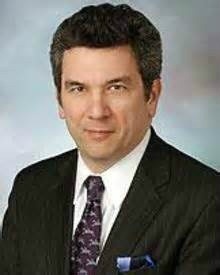"The Vic Kohring Catastrophe"
By Solomon L. Wisenberg, of Barnes & Thornburg, Washington, D.C.
March 13, 2011
I'm calling it the Vic Kohring Catastrophe, and it should be one for the DOJ, but so far the patience of Congress and the district courts in the face of DOJ's repeated blockbuster Brady violations seems infinite. Here are the things that really stand out for me from the majority opinion. (All of the judges voted to reverse, but the dissenter would have dismissed the indictment with prejudice.)
1. The government withheld information from the defense that its star witness, Bill Allen, was under investigation by the Anchorage Police for sexual exploitation of minors. The government also possessed and withheld evidence that Allen encouraged the minors to lie and arranged for one of them to be unavailable to testify against him. In other words, he suborned perjury and endeavored to obstruct justice. It is jaw-droppingly incredible that this information was not disclosed to Kohring. It is jaw-droppingly incredible that, even after its motion to dismiss the Ted Stevens indictment, the government did not disclose this information to Kohring until his defense team asked for it and the case was remanded to the district court. As the Ninth Circuit patiently explains, this was highly relevant impeaching evidence, and the defense would have been able, at a minimum, to ask Allen questions about it. If he had lied, the government would have been obligated to correct his perjurious testimony. What could the AUSA(s) have possibly been thinking when he/she/they failed to disclose this information? That it was immaterial or cumulative? Line AUSAs have no business making such determinations. Neither do their superiors. If it hurts, turn it over. It is hard enough for the prosecutive mind set to even understand all of the information in a case that might be Brady material. If we make them the arbiters of what is material and cumulative, the answer will usually be weighted in favor of non-disclosure.
2. Many of the non-disclosed materials were FBI 302s and IRS reports of interviews with key government witnesses. I've said it many times before and will say it again. No prosecutor has any business withholding the 302 of a testifying government witness. First, the prosecutor is not as qualified to find impeaching and exculpatory material in a 302 as is the defense attorney, who is looking at the case from a defense perspective. Second, and of far more importance, the AUSA cannot sit there in court and determine on the fly, in a white collar case involving dozens or hundreds of witnesses, which of a given witness's testimonial statements are inconsistent with his myriad 302s. Yes, we know, the 302 isn't Jencks if the witness has not adopted it, but the risk is too great that it will become Brady. Almost all offices in almost districts turn these statements over before trial. Why wasn't it done here in a high-profile public corruption case?
3. The government withheld many handwritten interview notes containing exculpatory information. This points to a widespread problem. Most AUSAs in white collar cases still don't believe themselves under a duty to turn over handwritten interview notes or to reveal the exculpatory information reflected in these notes. The Ogden Memo does not fully solve this pervasive problem. Such handwritten notes can qualify asJencks when the agent testifies and, as with 302s, may contain Brady information, either before trial starts or when an agent or another witness testifies. (It is very rare for an agent's handwritten notes to exactly match his or her final 302 report.) One of the handwritten notes that the government failed to turn over to Kohring was from an interview of Allen and indicates that: "Allen said he NEVER ASKED VIC TO DO ANYTHING IN EXCH. for cash or [unintelligible] or some benefit." Pretty important in a Hobbs Act-bribery case, no?
4, The government's failure to agree to a special verdict and/or special interrogatories clearly hurt its harmless error argument on appeal. Since the Ninth Circuit has no way of knowing what evidence, including the improperly withheld evidence, the jury might have relied on in reaching its general verdicts, the withheld evidence cannot be considered harmless. Opposition to special verdict forms and interrogatories is often short-sighted, and was clearly so in this case.
5. Finally, why wasn't all of this immediately revealed to Vic Kohring's defense team when DOJ moved to dismiss the Stevens indictment? The Stevens dismissal was obviously made at a very high level. Who knew about and failed to authorize disclosure to Kohring of this patently exculpatory material?
(wisenberg)
March 13, 2011 in Judicial Opinions, Legal Ethics, Prosecutions, Prosecutors | Permalink
